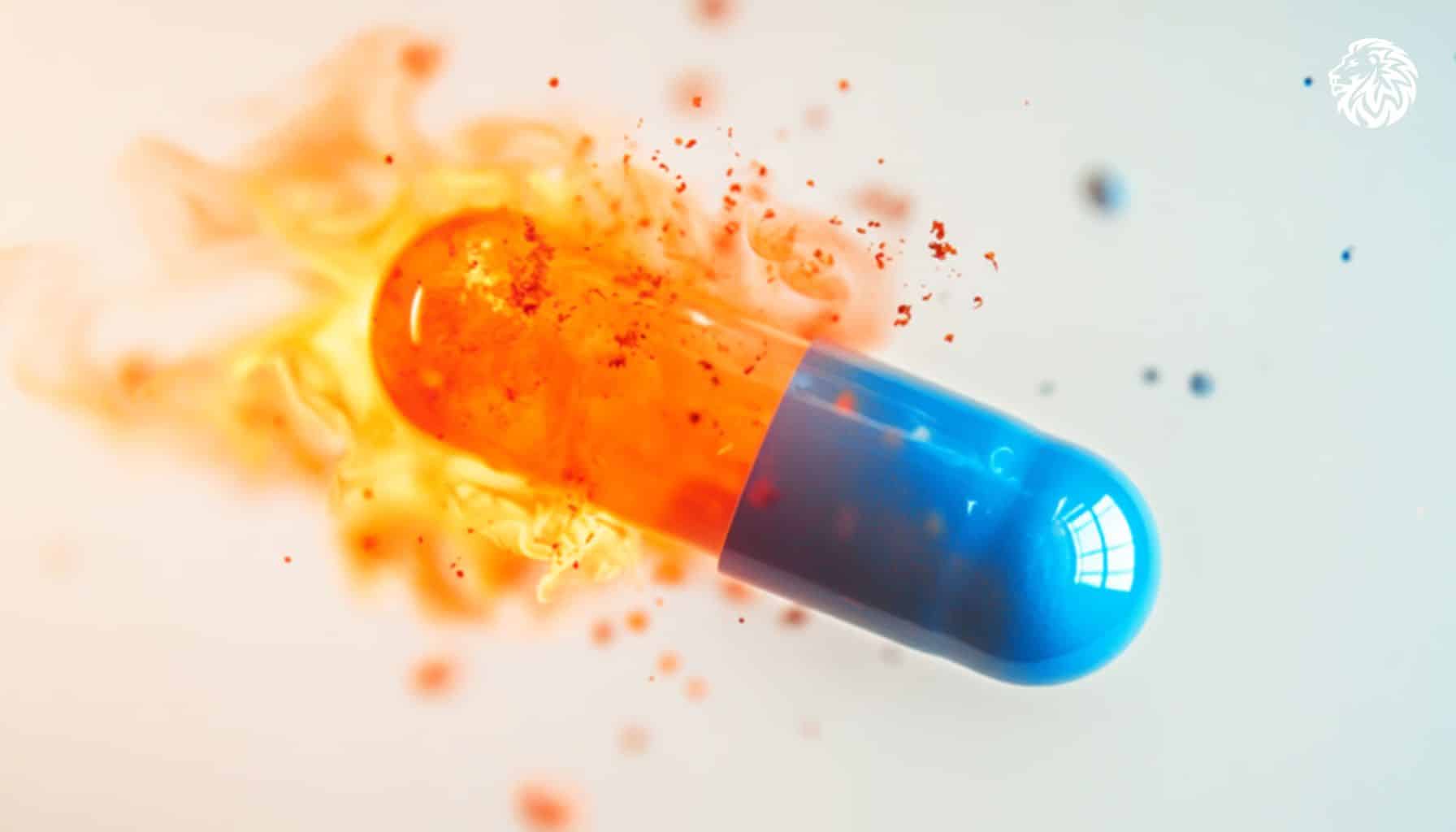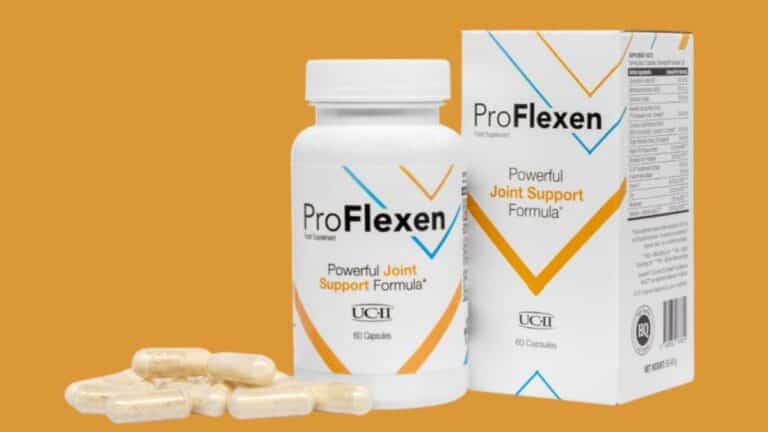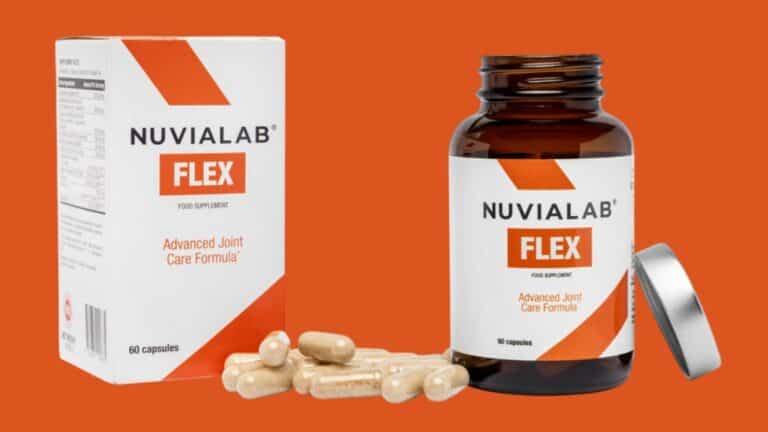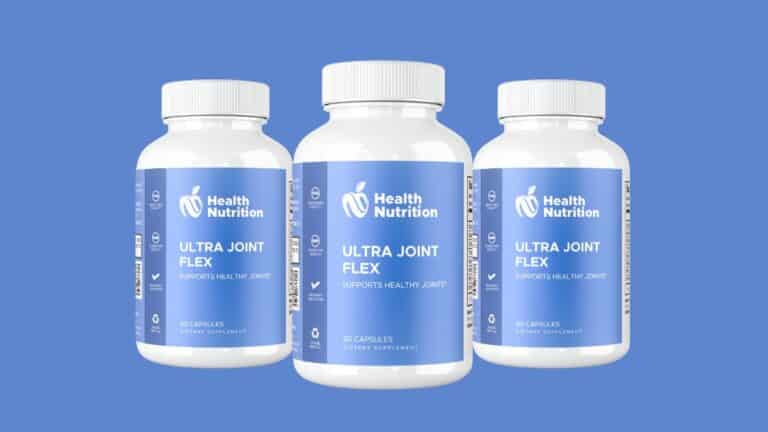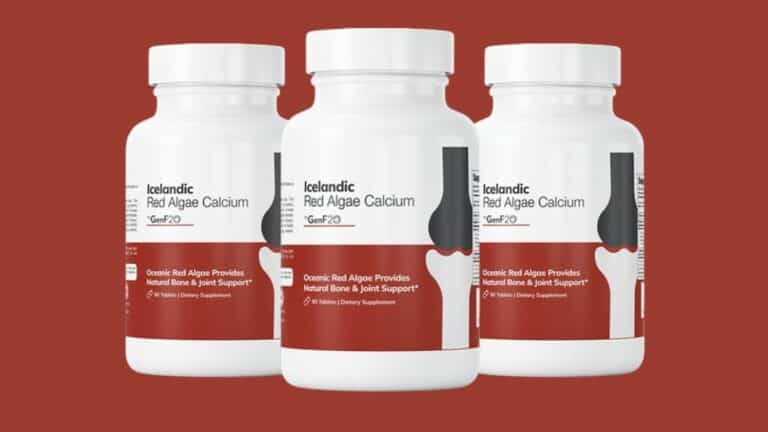In the pursuit of fitness and weight loss, fat burners have emerged as a popular supplement to aid individuals in achieving their goals. But what exactly are fat burners, and how do they work? This blog post delves into the details of fat burners, shedding light on their mechanisms, types, ingredients, and overall effectiveness. By the end, you’ll have a clear understanding of how fat burners can fit into a comprehensive fitness and weight loss strategy.
What Are Fat Burners?
Fat burners are dietary supplements formulated to help individuals lose weight by boosting metabolism, reducing fat absorption, or suppressing appetite. They are often used by athletes and those aiming to achieve a leaner physique. However, fat burners are not miracle solutions, and their efficacy largely depends on lifestyle factors such as diet and exercise.
Fat burners typically work through various mechanisms:
- Boosting Metabolism: Certain ingredients in fat burners can increase the body’s metabolic rate, allowing for more calories to be burned even at rest.
- Appetite Suppression: Some fat burners contain ingredients that promote a feeling of fullness, thereby reducing overall calorie intake.
- Fat Absorption Inhibition: Ingredients in these supplements may also prevent the absorption of fats from food, reducing calorie intake.
- Lipolysis Activation: This process involves breaking down stored fats into free fatty acids, which are then used for energy.

Types of Fat Burners
Fat burners come in different categories, each with a unique method of action. Choosing the right type depends on your specific goals, tolerance, and preferences.
- Thermogenic Burners: These are among the most common fat burners. They work by increasing body temperature, which in turn boosts metabolism and helps burn more calories. Ingredients like caffeine, green tea extract, and capsaicin are commonly found in thermogenic burners. However, these stimulants can also lead to side effects like increased heart rate and anxiety.
- Lipotropic Burners: Unlike thermogenics, lipotropic burners do not stimulate the nervous system. Instead, they help transport fat to the mitochondria, where it is burned for energy. These are generally considered safer for those sensitive to stimulants. Popular ingredients include L-carnitine, choline, and inositol.
- Appetite Suppressants: These burners use ingredients like glucomannan (a natural fiber) or protein to increase feelings of fullness, which helps reduce caloric intake.
- Carbohydrate and Fat Blockers: These supplements prevent the absorption of specific macronutrients, such as carbohydrates or fats, leading to reduced overall calorie intake.
- Cellulite Creams: While not technically fat burners, cellulite creams can temporarily improve the appearance of the skin by enhancing blood circulation in problem areas, making the skin smoother and firmer.
Ingredients in Fat Burners: A Comprehensive Breakdown
Fat burners typically contain a variety of active ingredients that work together to stimulate fat loss, either by increasing metabolism, suppressing appetite, blocking fat absorption, or enhancing energy levels. Here’s a more detailed look at the most common ingredients found in fat burners, including their mechanisms of action, benefits, potential drawbacks, and interactions with other supplements or medications.
1. Caffeine: The Universal Stimulant
Mechanism of Action:
Caffeine is one of the most widely recognized ingredients in fat burners, primarily because of its ability to stimulate the central nervous system. It increases thermogenesis (heat production), which helps your body burn more calories. Additionally, caffeine improves focus, alertness, and physical performance by promoting the release of adrenaline, which mobilizes fat stores to be used as energy during physical activity.
Benefits:
- Boosts energy and focus.
- Increases fat oxidation during exercise.
- Improves athletic performance, allowing for more intense workouts.
Drawbacks:
- Overconsumption can lead to insomnia, jitteriness, and anxiety.
- Regular use may lead to tolerance, diminishing its fat-burning effects over time.
- It can raise heart rate and blood pressure, which may be harmful to individuals with cardiovascular conditions.
Interactions:
Caffeine can interact with medications for anxiety, depression, and heart conditions. It can also increase the effects of other stimulants, potentially leading to overstimulation.
2. Green Tea Extract: The Antioxidant Powerhouse
Mechanism of Action:
Green tea extract is rich in catechins, particularly epigallocatechin gallate (EGCG), which is known to promote fat burning. EGCG enhances the body’s metabolism by increasing the activity of norepinephrine, a hormone that encourages fat cells to break down and release fat. Additionally, the caffeine in green tea works synergistically with catechins to further increase thermogenesis.
Benefits:
- High in antioxidants, which protect against cellular damage.
- Supports fat burning, particularly during exercise.
- May help lower cholesterol levels and improve heart health.
Drawbacks:
- Less potent than caffeine in terms of fat-burning capacity.
- Some people may experience mild digestive discomfort or nausea.
- Can interact with blood pressure medications.
Interactions:
Green tea extract may interact with anticoagulants, as it contains vitamin K, which affects blood clotting. It can also amplify the effects of stimulants, so combining it with other sources of caffeine should be done with caution.
3. Capsaicin: The Spice That Burns Fat
Mechanism of Action:
Capsaicin is the active compound found in chili peppers that gives them their spiciness. It works by increasing thermogenesis, which leads to a higher metabolic rate and more calories burned. Capsaicin has also been shown to reduce appetite by stimulating the release of satiety hormones.
Benefits:
- Increases metabolism and calorie burning.
- May reduce appetite, helping control calorie intake.
- Derived from natural sources like chili peppers.
Drawbacks:
- Can cause gastrointestinal irritation, leading to heartburn or nausea, especially in sensitive individuals.
- Not suitable for those with gastrointestinal disorders or sensitivity to spicy foods.
Interactions:
Capsaicin may interact with blood pressure medications and blood thinners, as it can increase circulation and thin the blood.
4. L-Carnitine: The Fat Transporter
Mechanism of Action:
L-carnitine is an amino acid derivative that plays a crucial role in the transportation of fatty acids into the mitochondria of cells, where they are oxidized and used as energy. While L-carnitine itself does not “burn” fat, it facilitates fat oxidation, particularly during exercise, which can support weight loss efforts.
Benefits:
- Enhances fat metabolism during exercise.
- May improve endurance and reduce post-workout fatigue.
- Helps with muscle recovery after strenuous activity.
Drawbacks:
- L-carnitine alone may not significantly reduce fat unless combined with exercise.
- Some individuals report mild side effects like nausea or diarrhea.
Interactions:
L-carnitine can interact with anticoagulants, as it may increase the risk of bleeding in individuals taking blood thinners.
5. Conjugated Linoleic Acid (CLA): The Fat Modulator
Mechanism of Action:
CLA is a type of omega-6 fatty acid that has been studied for its ability to reduce body fat by influencing enzymes involved in fat storage and metabolism. It may also help preserve lean muscle mass during periods of weight loss.
Benefits:
- May help reduce body fat and increase lean muscle mass.
- Provides anti-inflammatory benefits that support overall health.
- Derived from natural sources like meat and dairy products.
Drawbacks:
- Results from studies on CLA’s effectiveness are mixed, with some showing modest fat loss and others showing little to no impact.
- Can cause digestive issues such as bloating, gas, and diarrhea in some users.
Interactions:
CLA may affect blood sugar levels and should be used cautiously by people with diabetes or insulin resistance.

6. Glucomannan: The Natural Fiber for Satiety
Mechanism of Action:
Glucomannan is a water-soluble dietary fiber derived from the root of the konjac plant. It absorbs water in the stomach, forming a gel-like substance that promotes a feeling of fullness, which can help reduce food intake. It also helps regulate blood sugar and cholesterol levels by slowing the absorption of nutrients.
Benefits:
- Effective for promoting satiety and reducing calorie intake.
- Helps stabilize blood sugar levels and improves digestion.
- Derived from a natural plant source, making it suitable for those seeking stimulant-free options.
Drawbacks:
- Can cause gastrointestinal discomfort, including bloating, gas, and diarrhea.
- There is a risk of choking if not consumed with sufficient water, as glucomannan expands in the throat.
Interactions:
Glucomannan can interfere with the absorption of certain medications, particularly those taken to manage diabetes or cholesterol.
7. Guarana: The Caffeine Booster
Mechanism of Action:
Guarana, a plant native to the Amazon, is rich in caffeine and is often used to boost energy, focus, and fat burning. Like caffeine, guarana works by stimulating the central nervous system and increasing thermogenesis.
Benefits:
- Provides a strong energy boost and improves mental focus.
- Supports fat oxidation and calorie burning.
- Can improve exercise performance, allowing for more intense workouts.
Drawbacks:
- High caffeine content can lead to overstimulation, causing side effects like insomnia, anxiety, and increased heart rate.
- Prolonged use can lead to caffeine tolerance, reducing its fat-burning effects.
Interactions:
Guarana can interact with medications for anxiety, depression, and heart conditions, as well as other stimulant-based supplements.
8. Chromium: The Blood Sugar Regulator
Mechanism of Action:
Chromium is an essential trace element that helps regulate blood sugar by improving the action of insulin, the hormone responsible for moving glucose into cells. By stabilizing blood sugar levels, chromium may help reduce cravings for sugary or high-carbohydrate foods, which can support weight loss efforts.
Benefits:
- Helps control blood sugar and reduce cravings.
- Supports energy regulation, making it easier to maintain a workout routine.
- Generally safe when taken in appropriate doses.
Drawbacks:
- The effectiveness of chromium for weight loss is not universally supported by scientific studies.
- High doses can lead to side effects like headaches, insomnia, and gastrointestinal irritation.
Interactions:
Chromium can interact with medications that affect blood sugar, including insulin and oral diabetes medications.
9. Hydroxycitric Acid (HCA): The Fat Inhibitor
Mechanism of Action:
HCA, derived from the rind of the Garcinia Cambogia fruit, works by inhibiting the enzyme citrate lyase, which is responsible for converting carbohydrates into fat. By blocking this process, HCA reduces fat storage. It also increases serotonin levels in the brain, which can help reduce appetite.
Benefits:
- May help prevent the formation of new fat cells.
- Can reduce appetite by increasing serotonin levels.
- Derived from a natural fruit source.
Drawbacks:
- Effectiveness remains controversial, with mixed results from studies.
- Some users report side effects like headaches, nausea, and digestive discomfort.
Interactions:
HCA can interact with antidepressants, diabetes medications, and blood thinners, so caution is advised for individuals on these medications.
10. Apple Pectin: The Natural Appetite Controller
Mechanism of Action:
Apple pectin is a soluble fiber found in apples that forms a gel in the stomach, promoting a sense of fullness. This reduces overall calorie intake and can help manage hunger, making it an excellent addition to a weight loss regimen.
Benefits:
- Helps control appetite and reduces calorie intake.
- Supports healthy digestion and promotes gut health.
- Natural and stimulant-free, suitable for individuals sensitive to caffeine.
Drawbacks:
- Limited research on its direct effects on fat loss compared to other ingredients.
- May cause mild digestive discomfort, such as bloating or gas.
Interactions:
Apple pectin may affect the absorption of medications, particularly those that rely on fat for absorption.
By understanding the specific ingredients in fat burners and how they work, you can make a more informed decision about which supplement is right for you. Always consider the potential benefits, side effects, and interactions of each ingredient, and consult a healthcare professional before incorporating fat burners into your routine. Fat burners are most effective when combined with a balanced diet, regular exercise, and healthy lifestyle habits.

Effectiveness of Fat Burners
The effectiveness of fat burners is a hotly debated topic in the world of fitness and nutrition. While many people use these supplements as a way to accelerate their weight loss goals, the question remains: How effective are fat burners? In this section, we’ll explore the factors that influence their efficacy, the science behind their mechanisms, and how to use them optimally to achieve desired results.
1. Fat Burners Are Not Miracle Solutions
One of the most important points to understand is that fat burners are not magic pills that will instantly melt away body fat without any effort. They are tools designed to complement a healthy lifestyle, not replace it. Fat burners work best when used alongside a proper diet and regular exercise. In fact, without these key components, the benefits of fat burners are significantly reduced.
Fat burners can offer a range of benefits, such as increasing metabolic rate, reducing appetite, and enhancing energy during workouts, but their impact will vary greatly depending on individual factors like genetics, body composition, and lifestyle habits. These supplements should be seen as a supportive aid in your weight loss journey, rather than a standalone solution.
2. The Science Behind How Fat Burners Work
Fat burners employ several mechanisms to support weight loss, but their effectiveness is determined by how well they interact with your body’s natural processes. Here’s a closer look at the primary mechanisms of fat burners and the science behind them:
- Increased Metabolism (Thermogenesis): Many fat burners, particularly thermogenics, contain ingredients like caffeine, green tea extract, and capsaicin, which increase body temperature and metabolic rate. This process, called thermogenesis, encourages the body to burn more calories at rest and during physical activity. Thermogenic fat burners have been shown to enhance fat oxidation, especially during exercise, making workouts more efficient in terms of fat loss. However, the effects of thermogenesis alone are typically modest and can vary between individuals.
- Appetite Suppression: Some fat burners include ingredients like glucomannan, fiber, or specific proteins that help you feel fuller for longer. This reduces the likelihood of overeating and helps control daily caloric intake. Appetite suppressants can be very effective for individuals who struggle with hunger pangs or food cravings, but they must be combined with a healthy, calorie-controlled diet for optimal results. Suppression of appetite may help create the necessary calorie deficit for weight loss, but it doesn’t directly burn fat.
- Fat Absorption Inhibition: Some fat burners contain ingredients that block the absorption of dietary fats, such as chitosan or white kidney bean extract. These ingredients work by binding to fats in the digestive tract and preventing their absorption, thus reducing calorie intake. While this can be effective in reducing overall fat intake, it’s important to note that it won’t have a significant impact if the overall diet is high in carbohydrates or sugars, which these supplements do not block.
- Lipolysis Activation: Ingredients like L-carnitine and green tea extract help activate lipolysis, the process by which stored fat is broken down and converted into free fatty acids. These fatty acids are then transported to the mitochondria, where they are oxidized and used for energy. While lipolysis can contribute to fat loss, it typically requires an energy deficit—burning more calories than consumed—along with physical activity to be most effective.
3. Factors Influencing the Effectiveness of Fat Burners
While fat burners can enhance certain physiological processes related to fat loss, their overall effectiveness is influenced by a variety of factors. These include:
- Dietary Habits: The effectiveness of fat burners is heavily dependent on what you eat. If you consume more calories than your body needs, even the best fat burner won’t result in weight loss. Fat burners help create or enhance a calorie deficit by boosting metabolism or reducing calorie absorption, but if your diet is poor (high in sugars, fats, and processed foods), fat burners will have little impact.
- Exercise Routine: Combining fat burners with regular exercise—particularly high-intensity workouts—maximizes their benefits. Thermogenic fat burners can help you burn more calories during exercise, while ingredients like L-carnitine improve fat oxidation, allowing you to tap into stored fat more efficiently. However, if exercise is absent from your routine, fat burners will offer minimal benefits, as physical activity is essential for stimulating fat-burning processes.
- Dosing and Consistency: Fat burners must be taken consistently and in the correct dosage to be effective. Inappropriate dosing—either too little or too much—can reduce their effectiveness or cause undesirable side effects. Most fat burners are designed to be used for a set period, such as 4-6 weeks, to avoid tolerance buildup (especially with stimulants like caffeine).
- Quality of Ingredients: The purity and potency of the ingredients in fat burners play a significant role in their effectiveness. High-quality, clinically studied ingredients like caffeine, green tea extract, and CLA tend to be more effective than lesser-known or untested substances. Always choose supplements from reputable brands that disclose the full list of ingredients and their dosages.
- Individual Differences: Genetics, metabolism, and body composition greatly affect how well a fat burner will work for you. Some people may respond better to certain ingredients, while others may experience little to no effect. Additionally, factors such as age, gender, hormone levels, and stress can influence the body’s ability to lose fat, even with the aid of supplements.
4. The Importance of a Healthy Diet
One of the key determinants of fat burner effectiveness is your diet. Fat burners are not intended to replace a healthy, balanced diet; instead, they work best when combined with a nutrient-rich, calorie-controlled eating plan. Here’s how diet influences the effectiveness of fat burners:
- Calorie Deficit: Weight loss fundamentally requires a calorie deficit—you must burn more calories than you consume. Fat burners can help increase calorie expenditure or reduce calorie absorption, but they can’t create a deficit on their own. Maintaining a well-balanced, low-calorie diet is essential for fat burners to produce noticeable results.
- Macronutrient Balance: A diet rich in lean protein, healthy fats, and complex carbohydrates supports fat loss by keeping you full, stabilizing blood sugar levels, and providing the energy needed for workouts. Consuming a diet high in sugars, refined carbs, and unhealthy fats can negate the effects of fat burners, as they will have to work harder to process excess calories.
- Meal Timing and Portion Control: Eating smaller, more frequent meals throughout the day can help regulate appetite and reduce overeating, complementing the appetite-suppressing effects of fat burners. Fat burners that work best when taken before meals can be particularly effective in controlling portion sizes and managing calorie intake.
5. The Role of Exercise in Fat Burner Effectiveness
Exercise is an indispensable component of any weight loss plan, and fat burners can enhance the effectiveness of your workouts in several ways:
- Increased Energy: Many fat burners contain stimulants like caffeine or guarana that provide an energy boost, helping you push through intense workouts or longer cardio sessions. This not only leads to more calories burned during exercise but can also improve workout consistency and motivation.
- Enhanced Fat Oxidation: Ingredients like green tea extract, L-carnitine, and CLA improve the body’s ability to burn fat for fuel, especially during endurance or high-intensity workouts. By increasing fat oxidation, these supplements help the body use fat stores as an energy source, particularly during exercise.
- Improved Recovery: Some fat burners contain ingredients that help reduce fatigue and improve recovery times. This allows for more frequent or intense workouts, which can further enhance fat loss over time.
6. Realistic Expectations for Fat Burners
When it comes to fat burners, it’s essential to have realistic expectations. These supplements can aid in the fat loss process, but their impact is often gradual and requires consistency. The key to success with fat burners is to view them as a tool that supports, but does not replace, the hard work required in the kitchen and the gym.
Research suggests that fat burners can lead to modest improvements in fat loss, typically in the range of a few pounds over several weeks. The exact amount of weight lost depends on many variables, including diet, exercise, and individual metabolic rate. For most people, fat burners are best viewed as part of a comprehensive weight loss strategy, rather than a stand-alone solution.
7. Common Misconceptions About Fat Burners
- Myth: Fat Burners Work Without Diet or Exercise: This is one of the most pervasive myths about fat burners. No supplement can make up for poor diet or lack of physical activity. Fat burners enhance fat loss but cannot do the job alone.
- Myth: The More Fat Burners You Take, the More Fat You’ll Lose: Overdosing on fat burners can lead to serious side effects, particularly with stimulant-based products. Taking more than the recommended dose will not accelerate fat loss and may result in health issues like heart palpitations or digestive problems.
- Myth: Fat Burners Target Specific Areas: No fat burner can target fat loss in specific areas like the belly, thighs, or arms. Fat loss occurs throughout the body as a result of an overall calorie deficit, and fat burners can’t change where your body burns fat first.
Are Fat Burners Effective?
Fat burners can be an effective addition to your weight loss arsenal, but they are not magic pills. Their success largely depends on how well they are integrated into a healthy lifestyle that includes a balanced diet and regular exercise. With the right approach, fat burners can accelerate fat loss, boost metabolism, enhance workout performance, and help you achieve your fitness goals. However, for the best results, they should be used in conjunction with a long-term commitment to healthy eating and consistent physical activity.

Potential Side Effects
While fat burners offer several benefits, they also come with potential risks, especially for individuals with underlying health conditions or those who misuse the supplements. Some common side effects include:
- Increased Heart Rate: Thermogenic fat burners that contain stimulants can raise your heart rate, which may be dangerous for people with heart problems.
- Insomnia: High doses of caffeine or other stimulants can interfere with sleep cycles, leading to restlessness and insomnia.
- Gastrointestinal Issues: Ingredients like glucomannan or CLA can cause digestive discomfort, including bloating, gas, or diarrhea.
- Mood Changes: Stimulants can affect neurotransmitters, leading to feelings of anxiety, irritability, or jitteriness.
Using Fat Burners Safely
To use fat burners safely, always follow dosage recommendations and consult with a healthcare professional before starting any new supplement, especially if you have pre-existing medical conditions or are taking other medications. Additionally, it’s crucial to monitor your body’s response to fat burners and discontinue use if you experience severe side effects.
Fat Burners and a Healthy Lifestyle
The key to success with fat burners is balance. While these supplements can support weight loss by boosting metabolism and suppressing appetite, they are no substitute for a healthy diet and regular exercise. Here are some tips to maximize the benefits of fat burners:
- Follow a Balanced Diet: Ensure your diet is rich in protein, healthy fats, and fiber to promote satiety and maintain energy levels. Avoid processed foods high in sugar and unhealthy fats.
- Exercise Regularly: Incorporate both cardiovascular exercise and strength training into your routine. Cardio burns calories, while strength training builds muscle mass, which can increase your basal metabolic rate (BMR).
- Stay Hydrated: Drinking enough water is essential when using fat burners, especially those with diuretic effects, to prevent dehydration.
- Track Progress: Keep a journal to track your progress, noting any changes in weight, energy levels, and mood. This will help you adjust your diet, exercise, and fat burner regimen as needed.
Conclusion
Fat burners can be an effective tool in your weight loss journey when used correctly and in conjunction with a balanced diet and exercise plan. Understanding the types of fat burners, their ingredients, and how they work is crucial for making an informed decision about which product is best suited for your goals. However, it’s essential to consult with a healthcare professional before incorporating fat burners into your routine to ensure their safe and effective use.
Frequently Asked Questions (FAQs) About Fat Burners
What are fat burners, and how do they work?
Fat burners are dietary supplements designed to aid weight loss by increasing metabolism, reducing fat absorption, or suppressing appetite. They work by boosting thermogenesis, improving fat oxidation, or controlling hunger, helping create a calorie deficit.
Are fat burners effective for weight loss?
Fat burners can be effective when combined with a healthy diet and regular exercise. They enhance fat loss by increasing calorie burn, reducing appetite, and improving fat metabolism. However, they are not miracle solutions and should be used as part of a comprehensive weight loss strategy.
What are the main ingredients found in fat burners?
Common ingredients include caffeine, green tea extract, L-carnitine, CLA, capsaicin, glucomannan, and chromium. Each ingredient has a specific function, such as boosting metabolism, suppressing appetite, or aiding fat transport.
Do fat burners have side effects?
Yes, some fat burners can cause side effects like increased heart rate, insomnia, digestive discomfort, anxiety, and jitteriness, especially if they contain stimulants like caffeine. It’s important to follow dosage guidelines and consult a healthcare professional if you have any pre-existing conditions.
Can fat burners be used without exercise?
While fat burners can still help suppress appetite or boost metabolism, they are far more effective when combined with regular exercise. Physical activity increases calorie burn and enhances fat oxidation, making fat burners work better.
How long should I take fat burners?
Fat burners are often used in cycles of 4-6 weeks to avoid developing a tolerance, especially for stimulant-based fat burners. Continuous use without breaks can reduce their effectiveness and may increase the risk of side effects.
Can fat burners target specific areas like belly fat?
No, fat burners cannot target specific areas of fat loss. Fat is lost uniformly across the body, and where fat is burned first depends on genetics, not the supplement itself.
Are fat burners safe for everyone?
Fat burners may not be suitable for individuals with certain medical conditions such as heart disease, high blood pressure, or anxiety disorders. Pregnant or breastfeeding women should also avoid fat burners. Always consult a healthcare professional before starting any supplement regimen.
What should I look for when choosing a fat burner?
When selecting a fat burner, consider its ingredients, your personal health goals, potential side effects, and interactions with other medications. Look for products from reputable manufacturers with transparent ingredient lists and avoid “proprietary blends” that don’t disclose dosages.
Do I need to change my diet while taking fat burners?
Yes, a balanced, calorie-controlled diet is essential for fat burners to work effectively. Fat burners can help create a calorie deficit, but you still need to maintain a healthy eating plan rich in lean protein, fiber, and whole foods to support weight loss.
